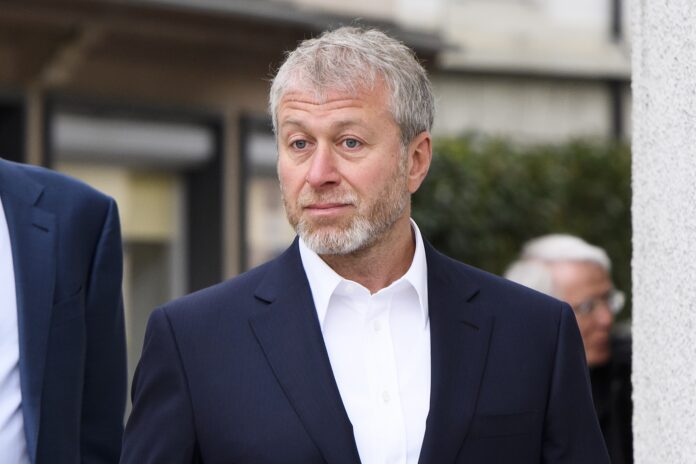Massive Investigation Unfolds in Germany
German authorities are conducting a major investigation into 58-year-old Russian oligarch Roman Abramovich, who is suspected of violating trade laws. The case is being handled by the Public Prosecutor’s Office in the federal state of Hesse, with support from law enforcement agencies. Reports suggest that Abramovich is linked to luxury assets in Germany that may not have been properly disclosed to the authorities. The case has drawn significant attention, with financial experts and political analysts closely monitoring developments.
The investigation gained traction after law enforcement officers seized four high-value cars in the town of Ober-Sülm in southern Germany. These vehicles, worth several million euros, include two Bugatti Chiron models, a Lamborghini Reventón, and a Mercedes CLK GTR. Authorities have placed restrictions on these assets, meaning they cannot be sold, leased, or used for financial transactions. The seizure has raised questions about how such valuable items remained hidden from regulatory authorities for so long and whether loopholes in the legal system allowed for this oversight. Abramovich’s financial dealings are now under intense scrutiny.
Apart from the luxury cars, German authorities have conducted searches at a 19th-century villa known as Leitenschlössl, located in Garmisch-Partenkirchen. Several valuable works of art were confiscated from the property, including paintings from renowned European artists and rare sculptures. The ownership of the villa is linked to a Luxembourg-based company, Parados Limited, but officials suspect that the assets ultimately belong to Abramovich. The sheer scale of these confiscations indicates the complexity of asset concealment mechanisms that individuals like Abramovich may use to bypass financial scrutiny.
Violation of Trade Laws Suspected
German prosecutors believe that Abramovich may have violated foreign trade laws by failing to declare these high-value assets. The law requires full transparency regarding financial holdings and properties, especially for individuals subject to international sanctions. Authorities suspect that Abramovich attempted to conceal ownership, which could constitute a legal offense. Investigators are also considering whether shell companies or intermediaries were used to mask asset ownership.
Legal experts point out that non-disclosure of valuable assets can lead to significant legal consequences. If found guilty, Abramovich could face a fine or a prison sentence of up to one year under German law. Additionally, authorities are assessing whether financial fraud or tax evasion charges could be added to the case, which may result in harsher penalties. The investigation aims to uncover whether Abramovich deliberately hid these assets to bypass regulations, a tactic that has been employed in past high-profile financial crime cases.
Abramovich’s legal representatives have denied any wrongdoing. According to them, their client is not the ultimate owner of the villa or the luxury cars. They claim that the assets belong to independent corporate entities with legitimate business purposes. Despite this claim, German investigators continue to gather evidence to determine the true ownership and financial connections of the seized assets. If ownership is traced back to Abramovich, it could have broader implications for other individuals linked to similar financial networks.
Wider Implications of Abramovich’s Asset Freezes
This case is part of a wider effort by European authorities to enforce financial restrictions on individuals like Abramovich. Following major international events, numerous sanctions have been imposed on wealthy business figures linked to specific industries. These sanctions include asset freezes, restrictions on financial transactions, and limitations on business operations in Europe. Law enforcement agencies have been particularly focused on identifying individuals like Abramovich who attempt to circumvent these measures through offshore accounts and corporate structures.
In recent years, authorities have intensified efforts to track down and seize hidden assets. Many high-value properties, luxury items, and financial holdings have come under scrutiny. The use of complex financial instruments, such as trusts and offshore banking, has made enforcement challenging, but investigators are leveraging advanced forensic accounting techniques to trace financial flows. This latest investigation into Abramovich is yet another example of how European countries are enforcing strict financial laws to prevent individuals from evading restrictions.
The case remains ongoing, with authorities working to establish the full extent of Abramovich’s assets and legal responsibilities. German officials continue to analyze financial records and ownership documents to determine if further actions need to be taken. This development highlights the increasing focus on financial transparency and compliance with international regulations. The results of this probe could influence future regulatory policies and set a precedent for handling similar cases in the future. Meanwhile, financial regulators and legal experts continue to assess how cases like Abramovich’s impact the global financial system and whether additional measures are necessary to close existing loopholes.


